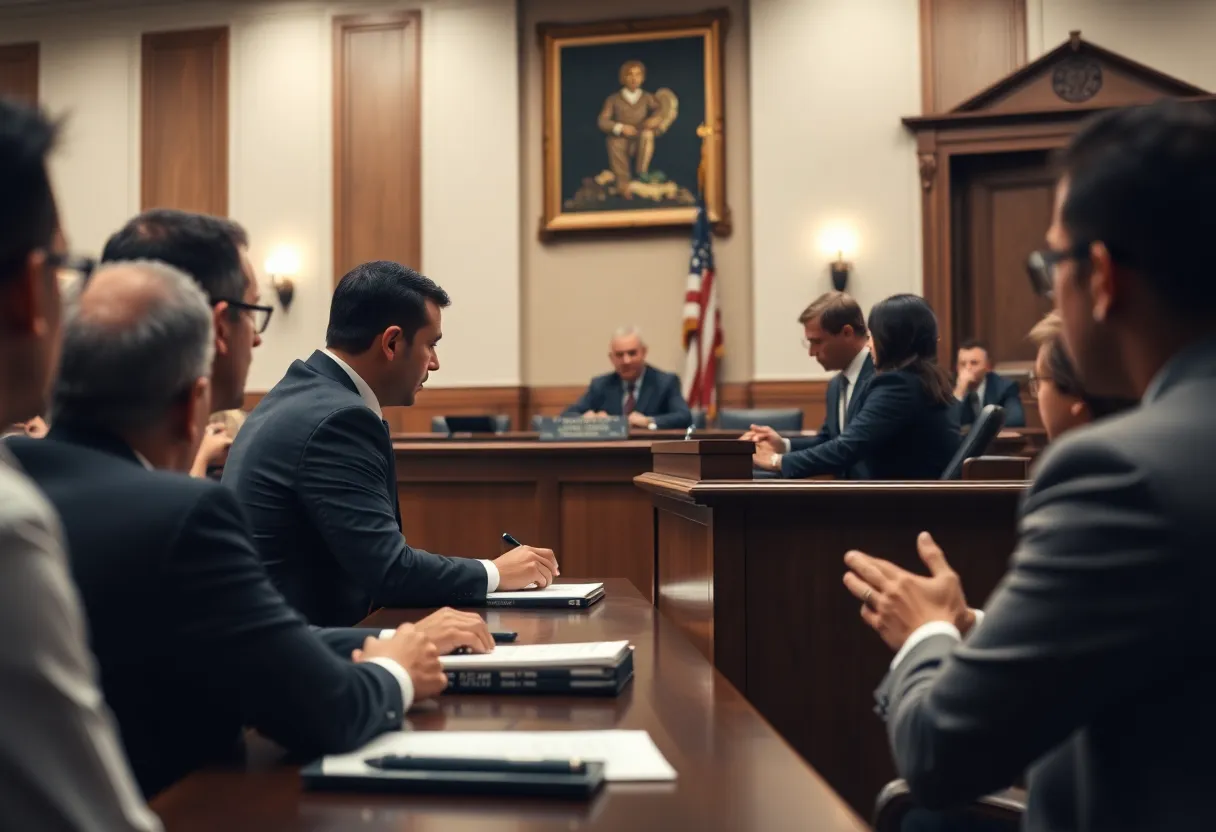News Summary
Oscar Rosa, serving a life sentence for the murder of nightclub bouncer Craig Viera, has been denied parole for the second time. Rosa’s violent past and behavior during incarceration led to the board’s decision, despite support from family members. The tragic incident, stemming from altercations at the Embassy Nightclub in 2006, remains a focal point in discussions about crime, rehabilitation, and public safety concerns in Massachusetts.
Boston, MA – Oscar Rosa, a 35-year-old man, was denied parole for the second time on Wednesday, following a tumultuous past marked by a tragic nightclub incident and subsequent behavioral problems during his incarceration. Rosa is serving a life sentence for the murder of Craig Viera, a bouncer who was fatally stabbed by Rosa in 2006.
The violent confrontation occurred on November 26, 2006, at the Embassy Nightclub (now known as House of Blues) in Boston. At the time, Rosa was only 20 years old. He was at the club with friends when they were denied entry to a restricted area due to their age and behavior, which had been deemed immature. After being asked to leave, Rosa became unruly and was forcibly restrained by security personnel.
During the altercation, Viera attempted to diffuse the situation but was stabbed in the abdomen by Rosa, who then fled the scene. Viera was initially hospitalized and later discharged. Unfortunately, he succumbed to his injuries on December 6, 2006, leading to Rosa’s conviction for murder and subsequent life sentence in 2008.
Recent Parole Hearing
During the parole hearing, the board took into consideration Rosa’s conduct in prison since his incarceration. Rosa has received multiple disciplinary reports, including serious incidents related to homemade alcohol possession and an assault on another inmate in 2019. Although he has shown participation in rehabilitative programs, the board expressed concern over his history of substance misuse and the concealment of involvement in a prison fight.
Rosa’s expressions of anger and violence during the 2006 incident were attributed to his difficult upbringing and earlier experiences of abuse. Reports indicate that he has some intellectual disabilities, a factor that the parole board considered significant during their assessment. However, despite these points, the board ultimately decided against granting him parole.
Support and Opposition
Rosa’s request for parole drew a mix of support and opposition. Support came from family members, specifically his mother and cousin, who advocated for his release. In contrast, Viera’s mother, friends, and the Suffolk County District Attorney’s Office firmly opposed the parole request, highlighting the lasting impact of Viera’s death on their lives.
This latest denial marks Rosa’s second rejection from the parole system, the first being in 2022. Each denial suggests a continued concern for public safety and a recognition of the severity of his past actions.
Background of the Case
The case of Oscar Rosa has remained relevant in discussions about crime and rehabilitation in the Massachusetts judicial system. The tragic events that transpired at the nightclub not only cut short the life of a young man but also left deep scars on his loved ones. Rosa’s life sentenced for the violent act showcases the severe consequences tied to actions fueled by anger and substance abuse.
As Rosa continues to serve his time, his family’s hopes for parole contrast sharply with the pain and loss experienced by Viera’s family. The dual narratives surrounding this case raise important questions regarding justice, rehabilitation, and the potential for change within incarcerated individuals.
Deeper Dive: News & Info About This Topic
HERE Resources
Additional Resources
- Boston 25 News: Night Club Roof Collapse Death Toll
- Wikipedia: Night Club
- NBC Boston: Man Arrested in Nightclub Killing
- Google Search: Nightclub Killing
- Boston.com: Timeline of Jassy Correia Case
- Encyclopedia Britannica: Crime
- NY Post: Louis Coleman Guilty of Kidnapping
- Google News: Jassy Correia

Author: STAFF HERE BOSTON WRITER
The BOSTON STAFF WRITER represents the experienced team at HEREBoston.com, your go-to source for actionable local news and information in Boston, Suffolk County, and beyond. Specializing in "news you can use," we cover essential topics like product reviews for personal and business needs, local business directories, politics, real estate trends, neighborhood insights, and state news affecting the area—with deep expertise drawn from years of dedicated reporting and strong community input, including local press releases and business updates. We deliver top reporting on high-value events such as Boston Marathon, Head of the Charles Regatta, and Boston Harborfest. Our coverage extends to key organizations like the Greater Boston Chamber of Commerce and Associated Industries of Massachusetts, plus leading businesses in finance, biotech, and insurance that power the local economy such as Fidelity Investments, Biogen, and Liberty Mutual Insurance. As part of the broader HERE network, we provide comprehensive, credible insights into Massachusetts's dynamic landscape.





